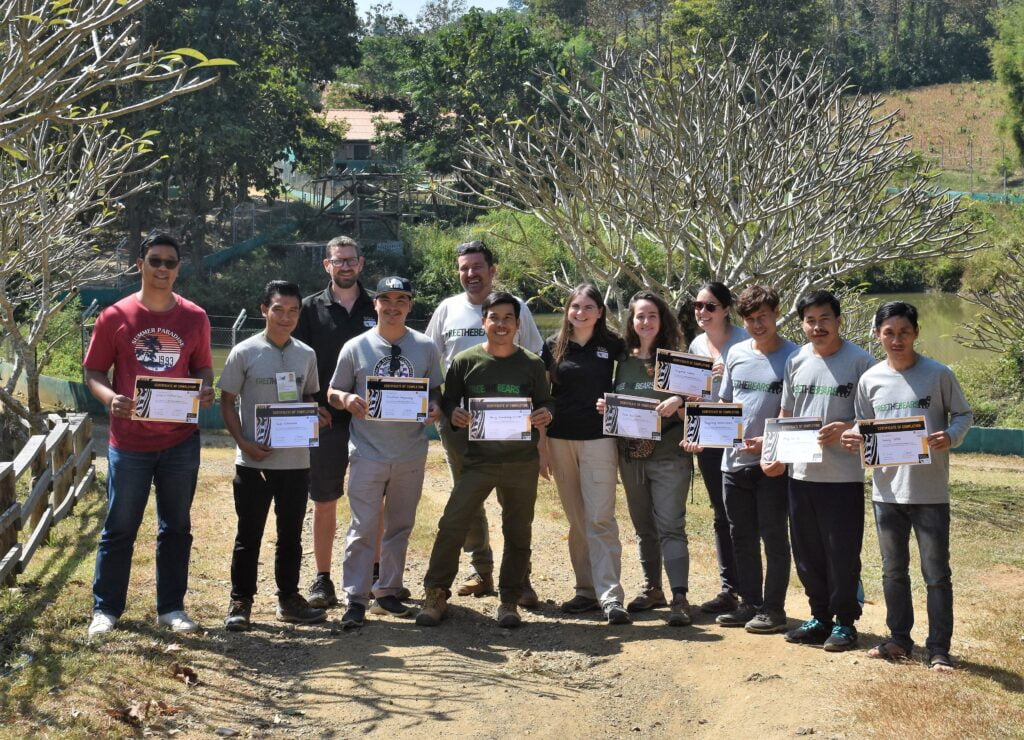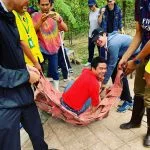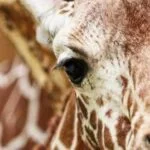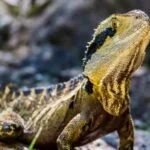Pioneering Programme for Learning in Laos
We have been making pioneering leaps forward into new territories with our acclaimed online learning programme. Recently, two of our team journeyed to Laos, a new country of operation for us, to launch an in-person edition of the Wild About Welfare digital education programme.

Sarah Bonser-Blake and the group going through the interactive quizzes of the programme together.
The e-learning programme provides animal care staff, who may not have had previous access to any formal training, with the knowledge and skills to immediately improve the welfare of the wild animals under their care. The aim is to create educational opportunities and long-term, sustainable changes to animal management practices.
In partnership with Free the Bears, a charity which rescues bears from bear bile farms and illegal wildlife trade, our team trained their first cohort of learners in Luang Prabang in November. All eight modules were explored during the five-day course which included theoretical learning and practical elements based on each module’s learning content.
The enthusiastic students were a mix of vets, animal care staff and higher managers from both the Free the Bears sanctuaries in Luang Prabang and an elephant care facility located nearby. The course was delivered bilingually with the learning content available in English accompanied by spoken Lao translations. This type of training was designed to give senior staff a full understanding of the course so that they could use it with the rest of their team, building personal development and animal welfare knowledge along the way.
“This has been my favourite workshop that we’ve ever hosted!” Matt Hunt, CEO, Free the Bears.
Many of the key points highlighted within the course such as the idea of behaviours which animals find rewarding to express, and the quality of life experienced by an animal, were discussed at length by the participants. Conducting the training in-person also allowed for further explanation where needed and utilised useful examples such as videos to demonstrate concepts in a way that surpasses language barriers. While the online learning programme is designed to be undertaken individually, the in-person course encouraged discussion and debate among the group to build confidence, share ideas and further understanding of animal welfare science.
Our learning programme aims to address knowledge and skills gaps which may result in captive animal suffering or suboptimal welfare. It gives animal care staff the tools they need to underpin their care practices with specialist knowledge, highlighting the reasonings behind animal management decisions and procedures.

Simon Marsh undertaking a practical enclosure assessment with some of the students.
For three out of the five days, practical elements were introduced to support theoretical knowledge and solidify understanding. These activities included conducting enclosure assessments for macaques and exploring different ways of presenting food to bears. Enrichment planning was another set task where participants were asked to plan an enclosure renovation including creating enrichment devices which would encourage natural behaviours for specific species.
“It was quite an emotional experience for me seeing everyone really engaging with the content. There was a real sense of learning together as everyone helped each other out with explanations, translations and concepts which might be difficult to understand.” Sarah Bonser-Blake, Animal Welfare Field Manager, Wild Welfare.
This was the first time a practical roll-out of the programme had been trialled, providing all involved with useful feedback for further application to the continued development of the programme.
The free-to-access course was created in partnership with the Jeanne Marchig International Centre for Animal Welfare Education (JMICAWE) and The University of Edinburgh. It is hosted on the Wild Welfare website and has seen use from across 63 different countries worldwide since its launch in January 2021. Currently available in English, Japanese and Vietnamese languages, further translations are planned for the future to increase accessibility to animal care staff worldwide.

The group with their certificates after completing the course.
~ENDS~
Notes to Editors
For more information or interview requests please contact Wild Welfare on communications@wildwelfare.org
Wild Welfare is a global organisation committed to improving animal welfare for captive wild animals. By uniting the world’s leading zoos, zoo associations and animal welfare organisations, we build trusting partnerships that help provide long-term solutions to critical wild animal welfare issues.
Our vision is to end the suffering of captive wild animals around the world and ensure full and sustainable protection is given to all animals in human care. Find out more at wildwelfare.org. Registered charity in England (no.1165941).





